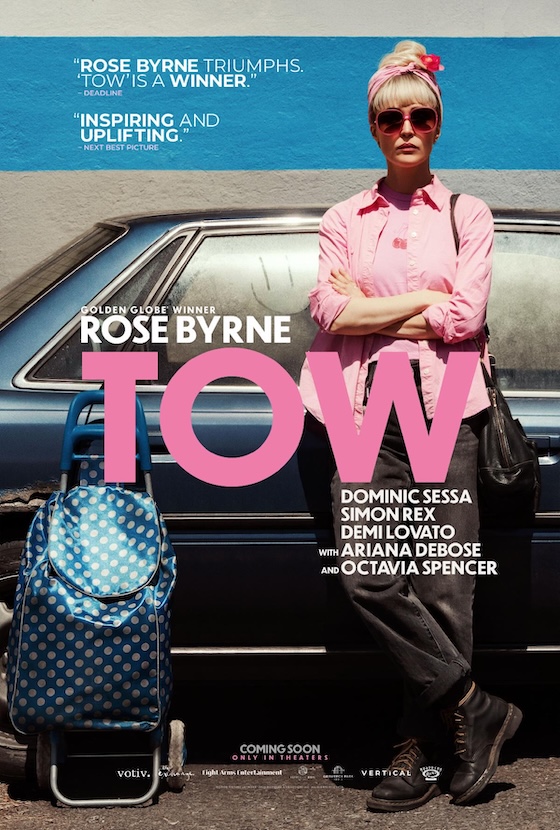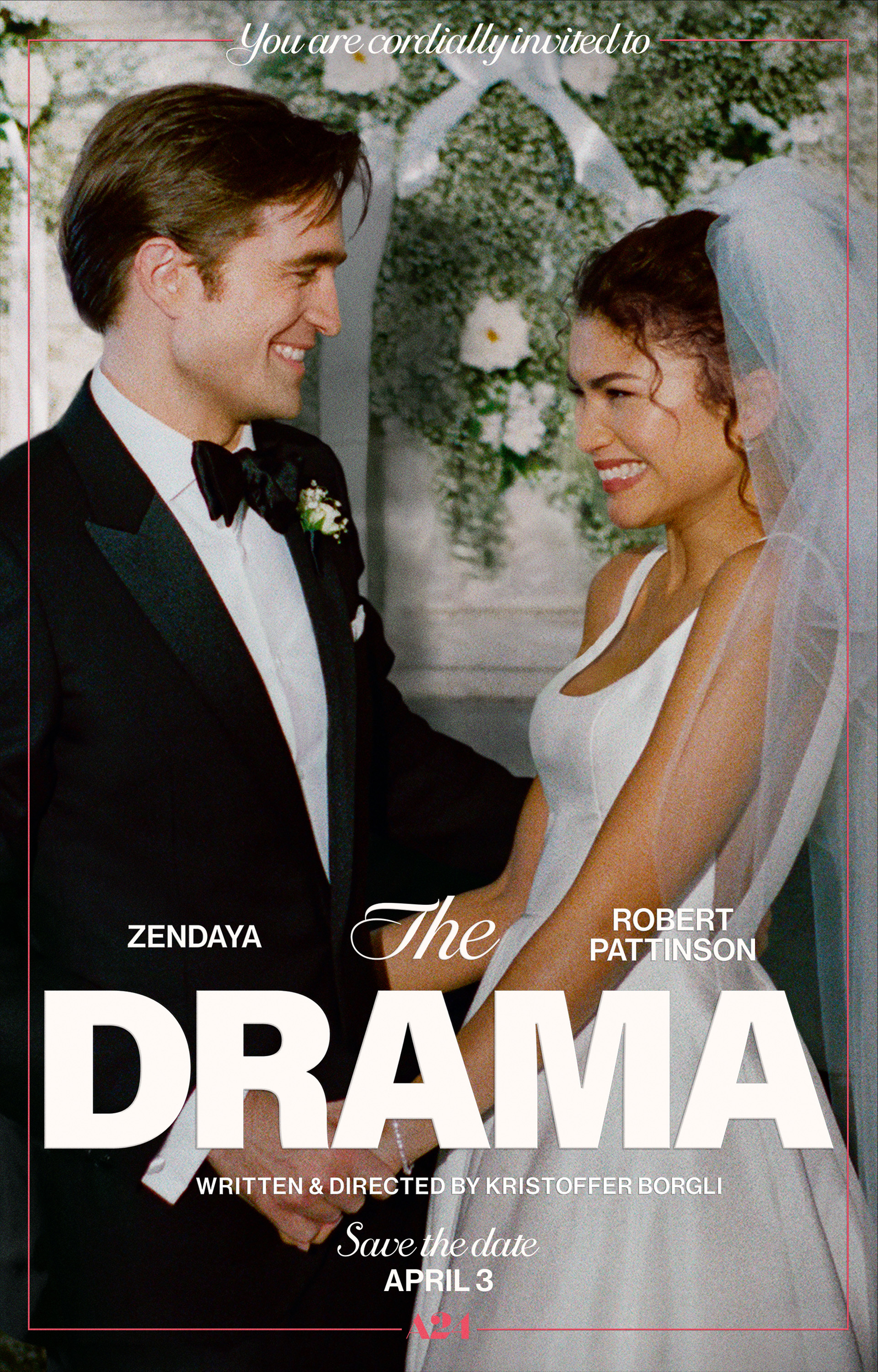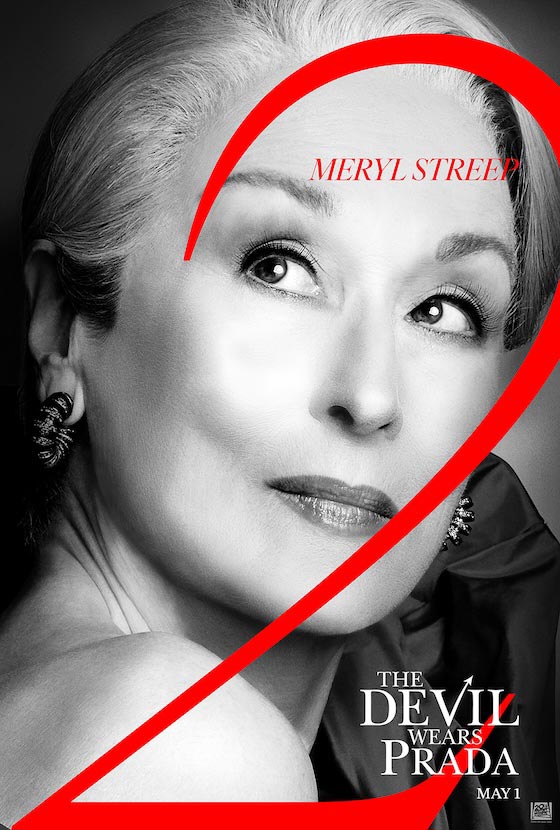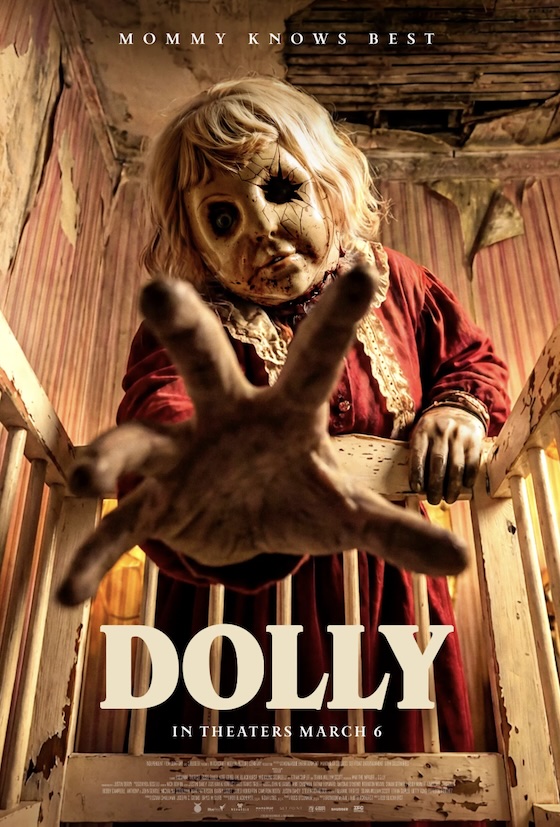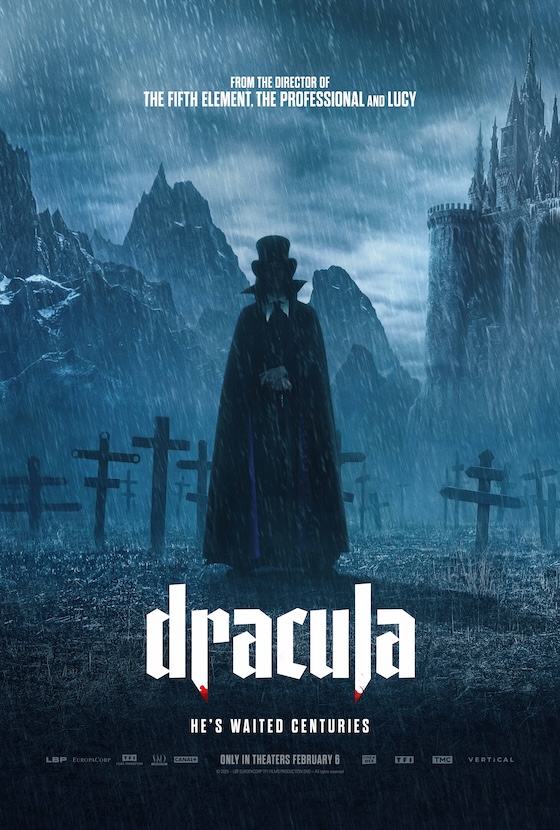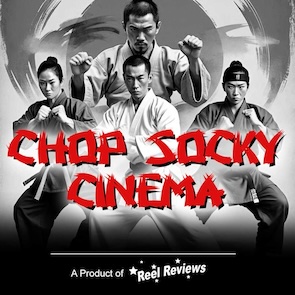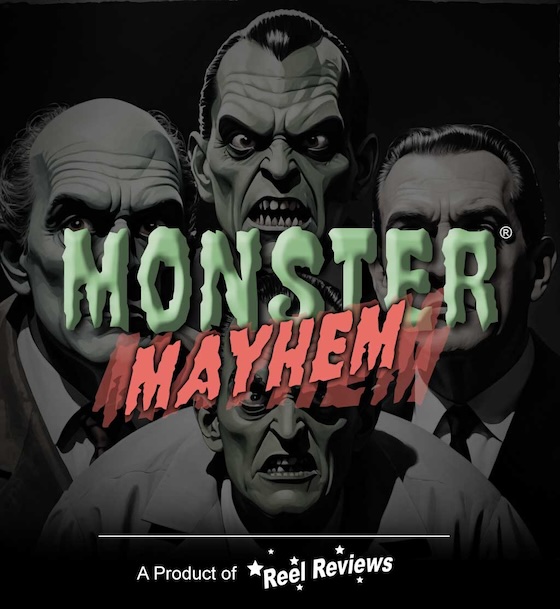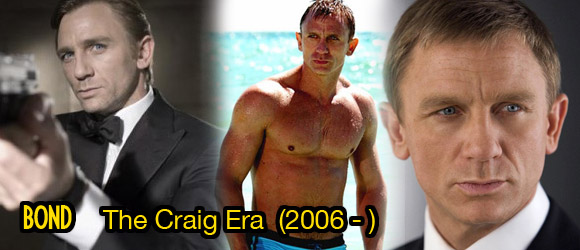
A fifth outing for Pierce Brosnan was being written as late as 2004, even though the rights to Fleming’s inaugural Bond tome Casino Royale had come into Eon’s possession in 1999. Although Brosnan’s last outing as 007 had been his highest grossing and the highest for the series at the time, there was enough backlash critically to make the producers want to rethink their approach.
Brosnan was approaching 50, and even the actor himself was painfully aware of Roger Moore eventually outstaying his welcome in the part. How all this eventually came to be is, as always, a matter for different interpretations, but in the end Brosnan announced he was not going to return, Broccoli and Wilson had decided to return Bond to a more realistic world, set at the beginning of Bond’s career, and therefore a new 007 would be required.
As always, many names started to be bandied about publically as to who would be worthy to take on the mantel this time: Clive Owen, Hugh Jackman, Karl Urban, Ewan McGregor, Goran Višnji?, Sam Worthington were but a handful of the reported 200 names considered. Henry Cavill, once the subject of an article ‘The Unluckiest Man in Hollywood’—because he kept taking runner up place to some major roles—was favoured by director Martin Campbell, but, at 22 years old, was deemed too young for the part (we shall soon see him as Superman, though, so he got lucky in the end!).
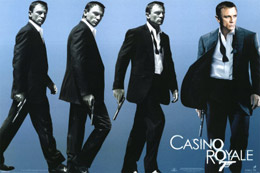 Despite strong opinion, and over forty years of cinematic preconceived notions of what James Bond should look like, the producers went for respected but hardly known Brit Daniel Craig. Craig was a rather rugged blonde man of average height with piercing blue eyes and protruding ears—nothing at all like the 5 men that preceded him. The world, now either blessed or cursed with the internet, went bananas when his casting was announced, decrying it the end of Bond, that the producers had lost their minds. A website, danielcraigisnotbond.com, sprang up with threats to boycott the next film if casting wasn’t reconsidered.
Despite strong opinion, and over forty years of cinematic preconceived notions of what James Bond should look like, the producers went for respected but hardly known Brit Daniel Craig. Craig was a rather rugged blonde man of average height with piercing blue eyes and protruding ears—nothing at all like the 5 men that preceded him. The world, now either blessed or cursed with the internet, went bananas when his casting was announced, decrying it the end of Bond, that the producers had lost their minds. A website, danielcraigisnotbond.com, sprang up with threats to boycott the next film if casting wasn’t reconsidered.
It was unequivocally the most caustic public reaction to the recasting of Bond in cinema history. While I’m sure everyone has their idea of what James Bond should look like, it seemed many weren’t even going to give the man a chance. The media consistently ran negative reports on Craig, months before he’d ever stepped in front of a camera as 007. Had anyone bothered to watch Layer Cake or Munich, or entertained that Eon had yet to drop the ball once on casting Bond (thought admittedly, this was the first time without Cubby Broccoli), they might have at least paused for the possibility the franchise was in good hands.
Pierce Brosnan’s wobbly output never once managed to tarnish the actor’s acceptance in the public eye, and it could be argued that anyone who replaced him, just like Timothy Dalton in the Eighties, was also going to have a hard time winning over the crowd; but love him or loathe him, the keys to the Aston Martin were now Daniel Craig’s, and he was about to teach some a valuable lesson about preconceptions.
With a new Bond usually comes a new style of picture, but this Bond was the first to not be tied down in the previous 20 outing’s continuity. Casino Royale would restart the franchise at the beginning of 007’s career; the opening teaser, shot in grainy black and white—which some attest to be a suggestion from Tarantino—would show Bond attain his licence to kill. After the outlandishness of Die Another Day, the order of the day for the new 007 was back to basics: no more CGI stunts, Bond would bleed and bleed profusely. He would also not resemble the seasoned, hardened operative we’d come to know. Bond would be a ‘blunt instrument’, yet to fully form.
With rivalling franchises appearing, especially the Bourne films, and doing so well with audiences, it was decided Bond needed to follow suit. Realism would be firmly re-established and a greater effort by Die Another Day’s writers, and Academy Award winner Paul Haggis, to deliver a fresh Bond adventure, remiss of the conventions so vehemently clung to for over four decades, would follow. There will always be narrative strength in the origin story of any character, and James Bond was no different. Amazingly, after 21 films, this would be the first time we would see some of the events that created the agent we all know, and it would be a rollicking good ride.
Craig storms into the role with a gusto that belies the nerves he was understandably feeling at the time. It would be no exaggeration to say he was utterly loathed in the part before he had even begun, but by the credits sequence, sung by Soundgarden’s Chris Cornell, Pierce Brosnan’s era is firmly behind us. What we have here is an actor with immense physicality that rivals even Connery, and in addition to that we have an accomplished actor who can deliver a multi-layered message with a single glance—he was, from his first frame, nothing short of spectacular.
One actor that the producers didn’t want to let go from the previous incarnation was Dame Judy Dench, who, despite it not really gelling with the new continuity, reprised her role as Bond’s boss: M. To play the woman who wounds Bond, and ensures his disconnection from women as anything but sport in the future, Eva Green would be aggressively pursued. It took a long time, and eventually the script to persuade the beautiful French actress, but she eventually was swayed and became one of the most popular Bond girls ever. The rest of the cast, from Mads Mikkelsen as Le Chiffre, Jeffrey Wright as Felix Leiter (a role he would reprise in the next Bond outing), and acclaimed Italian actor Giancarlo Giannini as Rene Mathis—a rather unreadable character in Bond’s life, would add nothing but class to the proceedings.
What followed, with a dynamite adaptation of Fleming’s novel and a stellar cast, was a Bond movie that silenced doubters, converted naysayers, and vindicated the makers in every way. Casino Royale freed itself enough to be its own animal, and for the first time in a long time Bond seemed fresh; so fresh in fact, that he took another highest grossing record of just under 600 million.
Of course, as impressive as this film was to most, there were still some who decried Bond had been reduced to a hired thug, remiss of anything he represented in the past. But this narrow view of the character, in this reviewer’s humble opinion, completely ignores the fact that Casino Royale’s sole responsibility to the character is to fire the starting gun. Watching Craig mess up, not be so assured or as seasoned as Bond has always been, makes it a fresh discovery; and someone doesn’t even need to be paying that much attention to recognise the finesse and groundwork being laid within the story to head Bond down that all too familiar path. The genius of this movie, after so many, is the interest this springboard for Bond elicits. Come the final moment in this film, you are gagging to see what those plot threads will lead to.
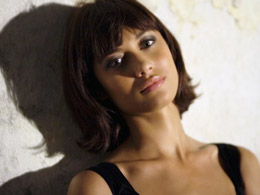 Work was already underway for the next Bond outing before Craig’s debut had won his doubters over. Quantum of Solace would become an attempted one/two punch, again trying for a first in the series: a direct sequel.
Work was already underway for the next Bond outing before Craig’s debut had won his doubters over. Quantum of Solace would become an attempted one/two punch, again trying for a first in the series: a direct sequel.
Following with the plot threads left dangling in Casino Royale, this one would start literally moments after the final scene of its predecessor. Marc Forster was hired to direct, and Wade, Purvis and Haggis returned to scripting duties. The only problem was a writer’s strike got in the way after only drafts were handed in at the eleventh hour. With a release date looming, it was decided to press on anyway and try to fix things on the fly—without the writers, who could not participate any further. Craig has since come out in recent years as admitted he, producer Michael Wilson, and director Forster, were forced to attempt to rewrite while shooting, and it’s one of the reasons the film’s narrative was accused of being incoherent.
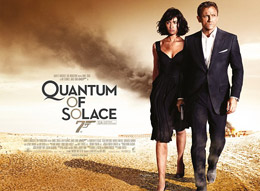 Quantum of Solace’s action quota was enormous, and its breakneck pace and shooting style had many accusing it of departing too far away from the Bond of yore into the realm of generic action movie. This is not to say the stunts are not spectacular, but with the writer’s unable to polish the script’s weaker elements, like character, and many films delivering the same if not better at that point, this film definitely was missing some important elements.
Quantum of Solace’s action quota was enormous, and its breakneck pace and shooting style had many accusing it of departing too far away from the Bond of yore into the realm of generic action movie. This is not to say the stunts are not spectacular, but with the writer’s unable to polish the script’s weaker elements, like character, and many films delivering the same if not better at that point, this film definitely was missing some important elements.
Bond is on the trail for the persons responsible for the death of Vesper in the first film. While leaving a trail of bodies, and pissing off M, he meets with a woman who is cursed with the same thirst for vengeance as he is. When M tries to call him off, Bond goes things alone and confronts a member of Quantum who is trying to manipulate a country into a coup d'état. During his fight, he begins to realise that his ‘quantum of solace’ may not be as simple as putting a bullet into the man responsible for Vesper’s demise.
There were definite attempts to produce even further depth in Craig’s Bond this time out, but it just never came to the fore of this movie the way it should have. What didn’t diminish in anyone’s eyes—in fact in spite of an obviously inferior outing—was Craig’s portrayal of 007. While rather mediocre narratively and heavy handed with its homages to an age they were supposed to be leaving behind, Craig’s Bond is again entirely watchable. The villain is, however, plain, forgettable, vanilla. The Bond girl, played by the beautiful Olga Kurylenko, was either not written well enough or doesn’t have the acting chops to elevate her character above clichéd. The fact that there was, for the second time in five years, talk of a spin off or a revisit with a female counterpart because ‘she is so good’ is ridiculously overstated in this instance. Miss Kurylenko is adequate in the role, and I’m sure did her best with what she had (her career seems to be going from strength to strength, so she’s not a bad actress), but Camille for this Bond fan wouldn’t even rate in the top ten Bond girls.
This film seemed a rapid misstep after a promising beginning. In many ways, it reminded this reviewer of Brosnan’s second outing. But I was rooting for Daniel Craig big time; after the shellacking he received after being cast, and his triumphant debut, I wanted to see not just a singular triumph, but a landslide victory. I wanted the series to honour the gift it was given when he signed on. I believed the moment I saw this guy he had the chops to be the greatest Bond ever.
As with Dalton’s era, Craig’s was about to be hit by something far worse than a mediocre Bond movie: the business side of things was about to hamper Bond’s future yet again. This time, it would not be from Kevin McClory, but from MGM entering bankruptcy. Work was stalled in early 2010, with the timing of the next adventure now uncertain. Would Sam Mendes—who was hired on Craig’s invitation—director of Road to Perdition (also starring Craig in a supporting role) stay on? Would Craig? The entire year would go by without a definitive answer. Craig himself admits to disappointment, and maybe even the thought that two would be his number.
By December 2010, Skyfall would be green-lit and set for a November 2012 release to celebrate Bond’s 50th anniversary on the big screen. The only major contributor to fall by the wayside from MGM’s financial collapse was writer Peter Morgan, and again Purvis, Wade, and this time Gladiator scribe John Logan finished what he began.
With a far longer lead in time, and the dissatisfaction internally with the end results of Quantum of Solace, it was decided to do a stand-alone movie that ignored Quantum or the plot threads the first two Craig outings. What Skyfall wouldn’t sacrifice, however, was character for plot—as is so often the case with Bond films. This would be an exploration of Bond at a later stage in his career; he is now a much closer representation of the agent we all know and love, with an added bonus: we see the toll his job has taken on him, and evidently on the man who will become his nemesis.
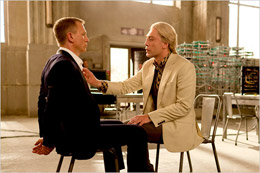 This film is proof positive that the Bond moments of old need not be sacrificed on the altar of a more realistic depiction of the character. Craig now firmly inhabited James Bond, and, with his acting skills, chewed the scenery from beginning to end, whether adjusting his cufflink after leaping into the front of a train carriage that has just been torn open, or in some of the most emotional scenes the character has ever experiences in his 50 year history. Also given a more thorough role this time out was Dame Judi Dench, whose role as M culminates in a way never really afforded a supporting character before. We see the return of Q, and (IF YOU HAVEN’T SEEN IT LOOK AWAY!) Moneypenny, completely reinvented in line with the modern James Bond.
This film is proof positive that the Bond moments of old need not be sacrificed on the altar of a more realistic depiction of the character. Craig now firmly inhabited James Bond, and, with his acting skills, chewed the scenery from beginning to end, whether adjusting his cufflink after leaping into the front of a train carriage that has just been torn open, or in some of the most emotional scenes the character has ever experiences in his 50 year history. Also given a more thorough role this time out was Dame Judi Dench, whose role as M culminates in a way never really afforded a supporting character before. We see the return of Q, and (IF YOU HAVEN’T SEEN IT LOOK AWAY!) Moneypenny, completely reinvented in line with the modern James Bond.
Skyfall has been lauded as a return to the classic Bond formula, but this reviewer completely disagrees with that interpretation. While the opening sequences, and certain moments certainly harken back to the Connery era—rather fitting for the 50th anniversary—the order of the day here is reintroduce classic elements in a modern and relatable way. The relevance of these stories in an underlying theme throughout the entire picture, and it is answered beautifully. But by far the most successful and completely new element is the subtle exploration of Bond’s childhood. While Casino Royale proved there was still gas in the Bond tank, Skyfall proves it was no fluke: Bond, with these new elements, is going to run for some time yet.
Daniel Craig, after all his tribulations slipping into the part, has resoundingly made it his own. He has benefited from his producers’ failings and their new perspective that the old ways needed to change—something Pierce Brosnan, unfortunately, did not—and a solid work ethic that has driven him to just do the best he can and forget the icon he is playing. But if he continues down the path of Casino Royale and Skyfall, an icon he will become, and he deservedly is already being touted as potentially the greatest James Bond there ever was. Daniel Craig is a human Bond; one that connects with the everyman more than any of his predecessors. His talent in the role is all-encompassing. I pity the man who follows him.
Check out part one of the Bond series - Bond: The Connery Era - (1962-1967, 1971)
Check out part two of the Bond series - Bond: The Lazenby Year
Check out part three of the Bond series - Bond: The Moore Era (1973-1985)
Check out part four of the Bond series - Bond: The Dalton Era (1987-1989)
Check out part five of the Bond series - Bond: The Brosnan Era (1995-2002)
Also, don't miss our comprehensive review of Bond 50, the massive set of all 23 James Bond movies meticulously remastered on blu-ray.

